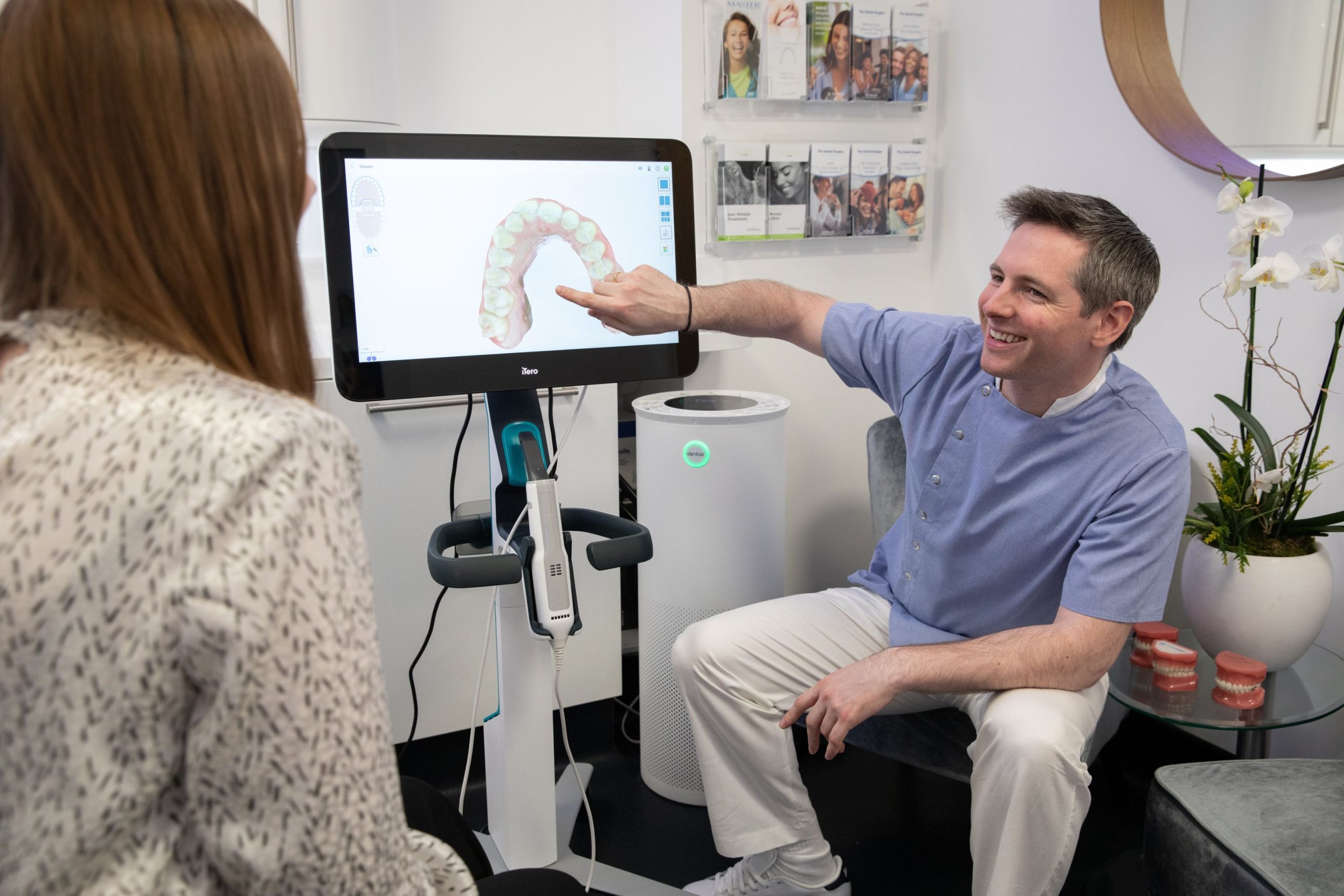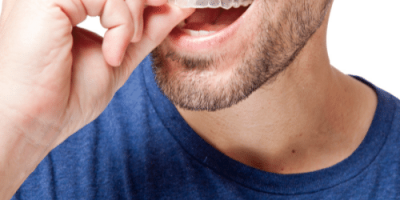- Categorised as:
- Teeth Whitening
What are the best teeth whitening options?
The impact of having dark stained teeth compared to white teeth can extend far beyond self-esteem.
Research has shown that after whitening their teeth, people are more likely to be successful in job interviews, to get the pay rise they are seeking and even for a date to go well.
This is likely due to both how the person perceives themselves after treatment, feeling more confident and open, and also how they are perceived by the person they are interacting with.
There is no doubt that teeth whitening is a cosmetic change that can have a big impact.
When we talk to anyone we focus on their face, having teeth that look healthy and white is clearly going to create a different impression to those that are heavily stained.
If such a small change can have the potential for such big results, it should be an easy decision to make, but with such a wide range of teeth whitening options to choose from this is not always an easy one.
Let’s have a look at what to consider, and what to avoid – with advice straight from our dental professionals.
Is teeth whitening right for you?
Teeth whitening: No one size fits all approach
The first key point to make is that there is no singular approach that will work for every person. Every mouth and set of teeth are different, so too the lifestyle of the person seeking whiter teeth.
Some people have minor discolouration of otherwise healthy teeth and gums, others might have gum disease and badly damaged teeth where there are issues to address before any whitening treatment is undertaken.
If your teeth are damaged, making them whiter might superficially make them appear healthier but in reality, it won’t address any of your dental issues and could even lead to further damage.
Anyone seeking to have their teeth whitened should always consult a dentist first, even if that is simply raising it during your regular dental check-up.
Legally, only a dentist can prescribe teeth whitening, as this is a form of dentistry.
Another regulated dental professional (i.e dental hygienist or dental therapist) can also carry out teeth whitening treatment, but only on prescription of a dentist – so you still need to see a dentist first.
Professional teeth whitening, such as the strips or trays, only work on natural teeth. If you have crowns, fillings, composite bonding or veneers, these parts of teeth won’t whiten along with your natural teeth and will need to be treated separately.
Whiter Teeth Treatment 1 – See a hygienist
In some cases, all that is required is the lifting of surface stains to create a brighter, whiter smile.
A quick 40 minute treatment session could have the result you are looking for.
In fact, we recommend seeing a hygienist before starting teeth whitening treatment.
This helps to remove surface stains and plaque so that you have an even whitening result.
Whiter Teeth Treatment 2 – Professional Teeth Whitening
Professional teeth whitening does exactly what you would expect – someone with skill and experience treats your teeth in a way that leaves them whiter but causes no damage to your enamel and gums.
At The Dental Surgery in London, our teeth whitening provides you with custom-made trays that perfectly fit your teeth.
You then apply a gel with a bleaching agent in the trays which you wear at home for a prescribed amount of time (overnight or for an hour) for a few days until you achieve the result you want (usually between 10 and 14 days).
Even with professional whitening you will notice that there are various options to choose from, and not all are created equal.
Some practices prefer what is known as “in-chair” whitening.
This one-off treatment has an immediate visual impact, but unfortunately one that can fade relatively quickly.
This treatment dehydrates the teeth, which leaves them instantly whiter, but this dehydration then wears off.
After one treatment, “in-chair” whitening may be more noticeable than just one use of the custom tray, but after multiple uses of the tray a longer lasting result is achieved (you can then use the gels only when you want to “top up” your whitening).
Whiter Teeth Treatment 3 – Internal Bleaching
This is only an option for non-vital teeth and those that have been discoloured over time.
These teeth would have had root canal treatment following trauma.
Bleach is placed inside the tooth for a while and then removed or replaced until the desired change in colour has been achieved.
Whiter Teeth Treatment 4 – Veneers
Teeth whitening will only change the colour of your teeth, if you are interested in changing the shape and position of your teeth (without opting for braces), as well as the shade, then veneers may be an option.
Veneers are placed on top of teeth to give them a new “front”.
The type of material that can be used (porcelain or composite) is dependent on the complexity of the treatment and your current oral health.
Veneers are a lifetime commitment, typically once a patient has veneers they will need future dentistry to maintain them (as they can fade and chip over time).
A dentist will discuss whether you are suitable for this type of treatment and talk you through all the necessary considerations.
Teeth whitening advice from The Dental Surgery
Avoid – Over the counter whitening toothpastes and teeth whitening strips
We can be brief here – these options do not work to change the intrinsic colour of your tooth.
“Whitening” toothpastes contain no active ingredient in enough dosage to have any whitening effect, similarly, whitening strips do nothing to change the internal pigment of teeth.
Charcoal toothpastes are no better, despite them being the latest craze. At best these options may remove surface stains, but at worst they can damage your teeth and gums.
If you are simply after the removal of stains, it’s best to have an appointment with a hygienist and benefit from having your oral health looked after.
Avoid – Online whitening kits
A common misconception is that the whitening kits you can buy online are essentially the same as a professional treatment. You get the tray to go on your teeth, you get some gel – how different can it be?
The answer is very different.
The amount of active bleaching agent can vary from being negligible to being far higher than it should be, even to dangerous levels.
Check the ingredients – is there any bleaching agent such as hydrogen peroxide or carbamide peroxide?
If there isn’t, you’re probably looking at something that contains Sodium bicarbonate (aka baking soda), Sodium chlorite (i.e. salt) or Citric acid – all of which won’t whiten the pigment of your teeth but may be abrasive enough to remove surface stains (and damage your enamel, which doesn’t grow back).
If you do see some form of peroxide in the gel, note the percentage. A dentist can prescribe up to 6% hydrogen peroxide (or the equivalent of 16% carbamide peroxide).
Over-the-counter products are only permitted to contain 0.1%. Be very careful of products that contain more than 0.1% peroxide, that aren’t prescribed by a dentist – not only are these illegal, but they can seriously damage your teeth and gums.
The mouth trays provided will not fit each individual’s teeth as they are mass created and so they won’t fit properly and comfortably, this means that the gel can spill over onto the gums – which it shouldn’t – and even be swallowed.
At best, the online kits are ineffective and a waste of money, at worst they are actively dangerous.
For all teeth whitening options – Seek professional advice
To choose the best treatment option for your teeth and your smile, it is essential to visit a well-regarded dental surgery with expertise in cosmetic dentistry.
If you live or work in London, please consider coming to The Dental Surgery for a check-up. You can book an appointment online at your convenience.
Would you like to learn more about teeth whitening in London?
View our treatment page or get in touch with us today.




